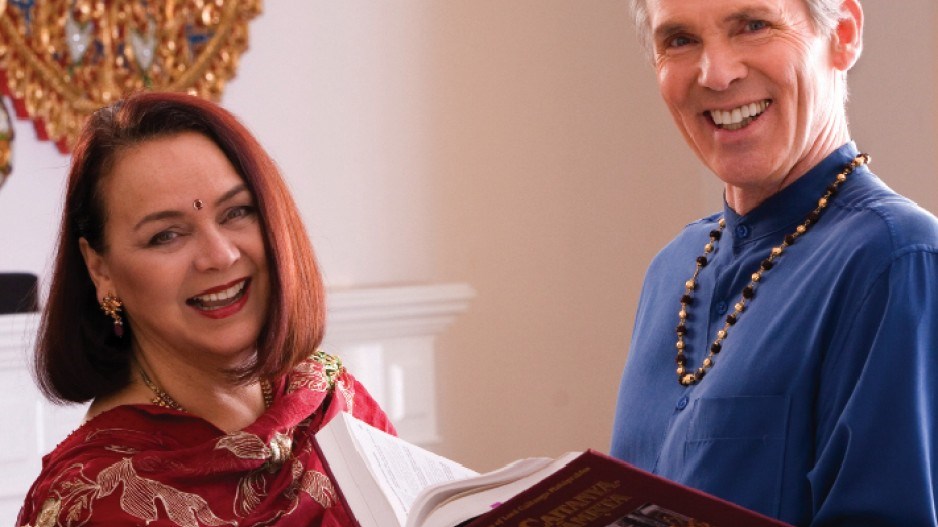As the owner of Silver Bullet Shredding, a three-person company in Burnaby, Bailey Jung runs into unusual conundrums. For instance: what to do with all the bankers boxes and binders left over from huge shredding jobs?
What easily could be bin fodder instead allows Jung’s company to make frequent donations to charity. When he accumulates a pile of boxes, which are still usable for moving, or binders, he advertises them on Craigslist and peddles them for a dollar or two apiece. Once he accumulates $50 or $100 in the office kitty, he passes the money on to a food bank or the SPCA.
“Every business has something of value, whether it’s a product or service, that they could probably turn into something for the community,” Jung said. “You don’t always see it on the bottom line immediately. But from meeting people and building trust and relationships, opportunities come.”
Maybe it’s smart business; maybe it just feels good. Either way, philanthropic small-business owners in Metro Vancouver say giving back is elemental to their mission and is well within reach of anyone with pluck and ingenuity.
Businesses of all sizes donate money and services to various causes. The most high-profile of those confer benefits on the donor as high-profile philanthropy becomes part of a company’s brand.
But how to leverage the resources of a small company? The desire is clearly there. A recent survey of Canadian entrepreneurs by Profit magazine found that three-quarters agreed that they have a “moral obligation” to give to philanthropic endeavours. Further, the survey found, the average donation from firms claiming annual revenues less than $500,000 was nearly $23,000.
“You look at your sphere of influence, customers, suppliers, employees,” said Lloyd Bernhardt, owner of Ethical Bean Coffee. “Look at where you can make a difference. If everybody does a little bit and does what they can, it would be fantastic.”
Bernhardt founded Ethical Bean with his wife, Kim Schachte, in East Vancouver in 2003, on a principle of fair trade and offering material support to the coffee’s sources.
It’s no surprise, given the company’s name, that it donates money or coffee to a range of causes in Vancouver – the Dalai Lama Center for Peace and Education, the Vancouver International Film Festival, TEDx Talks – as well as infrastructure and scholarships in Guatemala.
“Some businesses have always done the right things, but it’s becoming more of a focus with social media,” Bernhardt said. “If you’re not doing that kind of stuff, people are not going to be engaged in your brand.”
To Bernhardt, companies have at least as much responsibility as individuals to contribute to community. One benefit for employers, he said, comes in attracting and retaining employees who are motivated by that prospect.
“People really need that,” Bernhardt said. “Work is such a big part of life. They want to know their hard work is going beyond profits and shareholder expectations and making a difference in the world.”
The intrinsic motivation that comes with charitable works moves Sandi Graham, who along with her husband, Jeffrey Armstrong, organizes a monthly baked potato handout on Vancouver’s Downtown Eastside. They’ve run the SPUD Patrol for 15 years, timing the event to the full moon.
“In the beginning, [volunteers] think they’re doing it for the street people,” Graham said. “But believe me, the heart does more for the person giving the potato, in a way. People need to have that graciousness of giving and helping.”
On a typical night, they and others might give away more than 500 home-baked, foil-wrapped, buttery potatoes. December’s handout — arriving when many volunteers feel moved by the Christmas season — runs somewhere around five times that number.
The couple have enlisted plenty of interested parties over the years, including many of the students at Armstrong’s online spiritual school, the Vedic Academy of Science and Arts, who are drawn to putting compassion into action.
“You cannot do yoga as a lifestyle unless you see all living entities are connected,” Armstrong said. “You have to act as if all life is sacred. It’s got to be demonstrated in your life.”
Perhaps not all philanthropic ventures so literally mirror a business’s philosophy. But to hear entrepreneurs tell it, almost any small business can help the community simply by doing what it does best.
Beyond selling the leavings from his business, Jung and Silver Bullet also hold shredding events with their mobile trucks, often setting up in a Rona parking lot and obliterating folks’ accumulated tax records and medical bills and such in exchange for donations. Proceeds tend to go small non-profits in Metro Vancouver (one recent recipient was the Pacific Assistance Dogs Society) for which a $1,500 donation may represent a relatively rich haul.
“Nowadays customers and people want to align themselves with companies that give back to the community,” Jung said. “If we can’t write the big cheque, maybe we can offer our services and offer our time.”




